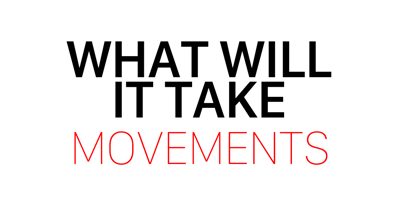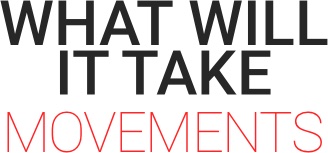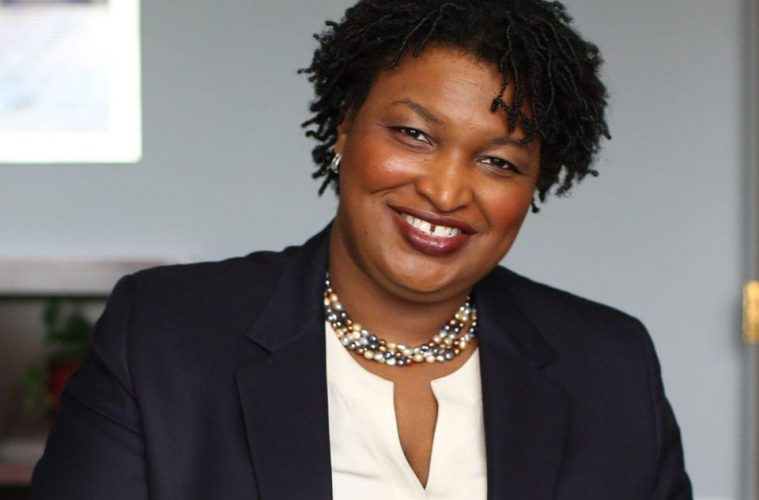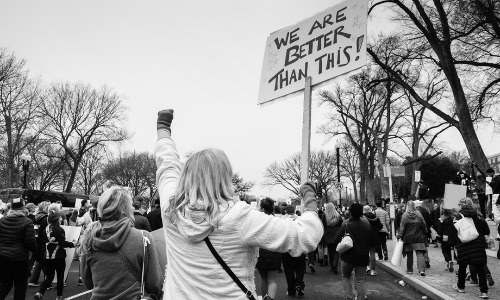Stacey Abrams came into the national public eye during her historic run for governor of Georgia in 2018, a high-profile and closely fought gubernatorial bid that would have seen her become the first black woman ever elected governor. Her inspiring leadership, message and vision drew passionate support from around the country, and although she won more votes than any other Democrat in the state’s history, she lost the election amid significant controversy over the way the election was conducted and concerns of widespread voter suppression and gross mismanagement of the process—an experience that inspired Abrams to launch Fair Fight Action, an organization that advocates for free and fair elections to make sure every voter’s voice is heard.
Yet fighting for fairness is nothing new to Abrams, who has spent her varied career as a highly respected leader advocating for voting rights and equality and aiming to crack glass ceilings and advance leadership for women, minorities and the working class.
With her heightened profile and enormous popularity after her bid for governor, there has been a lot of speculation about what her next steps may be, including whether she will run for president—a goal she audaciously outlined for herself as a young girl, which she talks about in her new book, “Lead from The Outside: How to Build Your Future and Make Real Change.”
Lead from the Outside is a personal memoir and a leadership “how-to” guide in which Abrams talks candidly about the hard-fought life lessons and tools she has learned throughout her long and diverse career as a state representative, a CEO, the founder of multiple organizations, and a serial entrepreneur. She offers personal stories of her own successes and failures in the hopes that readers can create their own paths to leadership and know that, as Abrams put it, “making mistakes and failing isn’t fatal… as long as we are willing to learn from it.”
In the following interview, Stacey Abrams talks candidly and poignantly about her thoughts on leadership, how to develop courage and confidence, and her call to action.
Marianne Schnall: You’re a great writer, and there’s just so much guidance and wisdom in your book. Why did you decide to write this book, and what was the overall message that you were hoping to convey?
Stacey Abrams: I’ve gotten an opportunity to lead a very complex and interconnected life. And when I would speak to different audiences, whether I was talking to young people about going into politics, or women entrepreneurs, or conversations with communities of color about how to attain higher and higher positions in leadership, the two questions I consistently got were, “How did you do it?” and then “How can I?”
And part of the responsibility to me was more the practical “how tos.” What were the steps? But the pushback I got [on that]—and I think it was legitimate and useful—was you have to tell your own story for this to have resonance. People need to know what this looks like. And that to me made a great deal of sense. So the book really was the combination of excavating things I’d done well, done poorly, done by accident, and then the reconstruction of those successes and failures so that more people could understand how to, not replicate what I’ve done, but to create your own pathway.
And I think the other piece of it was I really wanted people to understand that while I’m certainly most well-known for my work in politics, these are lessons that served me as entrepreneur, they served me a young manager of an organization, they served me as the CEO of a non-profit. And so really making certain that I was writing a book that not only spoke to what I’ve been able to do but demonstrated that the fundamentals of leadership at large cut across sectors.
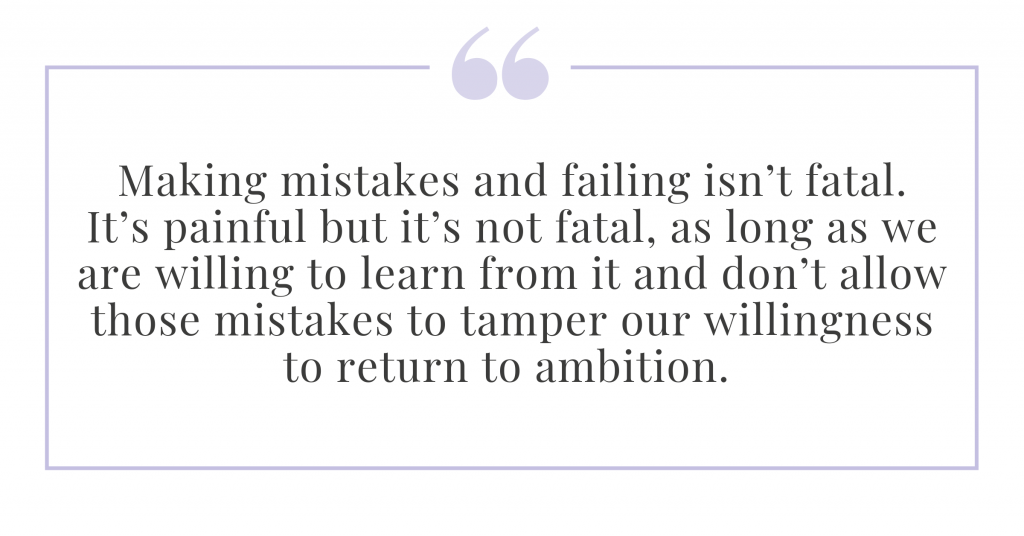
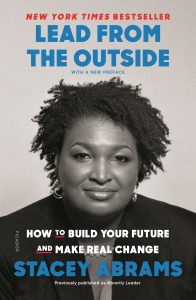 MS: Obviously, everyone should read the book to get the full picture, but to sort of distill it, what life lessons do you think can be gleaned from your personal stories? What have you learned through your own journey about leadership and overcoming adversity that you think would resonate with others?
MS: Obviously, everyone should read the book to get the full picture, but to sort of distill it, what life lessons do you think can be gleaned from your personal stories? What have you learned through your own journey about leadership and overcoming adversity that you think would resonate with others?
SA: Number one: We should have aggressive and wild ambitions that are only anchored by plans, not by doubts. I try to do things and have been successful—and not successful—but because I’ve gone beyond what I was told was normal for my community or normal for me, I’ve been able to have extraordinary opportunities.
Number two: Making mistakes and failing isn’t fatal. It’s painful, but it’s not fatal, as long as we are willing to learn from it and don’t allow those mistakes to tamper our willingness to return to ambition. We still have to try.
Number three: It’s okay to be afraid. Fear is normal and real and, in its own way, healthy. It is disingenuous for anyone to tell us that we shouldn’t be afraid of racism or sexism or bigotry or homophobia, or xenophobia—you know, add the “ism” that you want. And this notion that you should reject fear or reject that the outsider sensation that you have isn’t real, is untrue. It is real, but you can tackle it. And so, for me, the tackling of fear, the confrontation of fear—fear of shame, the fear of disappointment, fear of success—is okay.
MS: Speaking of “isms,” you write a lot about having to overcome so many disempowering messages, which you could have internalized, but instead managed to transcend—whether it was limitations put upon you due to gender, class, race, among other “isms” and obstacles. How did you develop your self-esteem and find confidence and courage to believe in yourself and go for your goals, despite all of those outside influences?
SA: A large part of it comes from my parents and my family. My parents are extraordinary people who told us about their lives—never as a warning not to try, but really to say, “Here’s what we’ve been able to do and our expectation is that you can do this, too, and more.” They never put constraints around our interests. They never said, “Well, that’s not what you should do.” They supported our ideas, and they supported our stumbles.
And I think layered on top of that it was making mistakes and realizing in the aftermath that I was still capable of doing something else. Some people are born with confidence. Some people are imbued with it based on their circumstance. But for a lot of us, confidence is borne of tragedy and disappointment, and the realization that we can still do more; it’s borne of resilience. And I think, for me, because I’ve had these experiences and because I’ve still been able to try again and try new things, I’ve sort of internalized my parents’ tropes about how I can do anything. And then I’ve pushed myself past the places where I wanted to stop because I was angry or sad or disappointed.
MS: I think a lot of people look at you as being very courageous. Even being willing to break the rules when you refused to concede the election. Where do you find your courage, especially when it’s to speak out in a way that goes against the grain, where you know you’re going to get pushback?
SA: Recently, I was in conversations with some fairly important people about my political future, and one person mildly warned me that I was losing my altitude with my approval rating—that people were getting antsy and I might need to dial it back. And the reality is there is an instinct that says you want to preserve what you have. My responsibility, though, and my parents raised me to understand this, is that this isn’t about me. Especially the work I do in service. It’s about the people I actually intend to serve. The minute I forget why I’m doing it, I shouldn’t be doing it anymore.
I see it less as courage and more as responsibility. It’s my obligation to talk about the flaws in our systems, talk about the broken places, because you cannot fix that which you do not know is broken. There is a comment I made about the regularity with which candidates concede elections these days. And if the election is fair, absolutely. But if there are flaws in the system, my point is we have to call those flaws out because we cannot improve if we don’t know there are problems. And I believe always in respecting the law. I’ve always said I was not the legal victor, but I have a moral responsibility to make certain that the next person who runs—and more importantly, the voters who lift up their voices—are actually heard.
And so I would say, again, I just see it as it’s your job. If you say you want to be in service, your job is to serve. If you are in the business space and you say you want to be a leader who’s moving your business forward, then sometimes that means making hard choices and foregoing easy answers because your responsibility is to more than yourself. Your responsibility is to your employees, it’s to your shareholders, it’s to your customer base. Those are the things that we often describe as courage, which are really just living up to our obligations.
MS: I know you’ve even taken this one step further based on your experience during your run for Governor of Georgia and all the glaring forms of voter suppression that you witnessed, which inspired you to found Fair Fight Action. What is the mission and vision of the organization? We’ve seen some real-time effects of—even with this very restrictive abortion law that was just passed in Georgia—what happens when voters and citizens are not listened to and their voices are not heard.
SA: The mission of Fair Fight Action is to create and compel free and fair elections in the State of Georgia. To dismantle a system that disenfranchises voters and that uses the rules and the laws of the land to justify voter suppression. Our argument is that we can accomplish that through litigation, legislation and advocacy. Litigation because we need support to step in and to say that this is a violation of the Constitution. We need legislation because we need to stop new bad from happening and we need to start to undo the harm that has been done. And we need advocacy because it’s critical to remind voters of the consequences of their voices being silenced.
And 481 is a perfect example: this is a bill that is in direct violation of every public poll in the State of Georgia and certainly of the outcome of the election. Because even presuming the narrowest of victories, there is nothing in the process that suggested that we should be a state that promotes such Draconian laws, and that so dramatically curtails the autonomy of women and their ability to control their body.
MS: Right now it seems like such a tumultuous time, and yet I think we are seeing some promising trends in terms of the levels of civic engagement when it comes to women raising their voices and a movement toward wider diversity in politics. What positive shifts do you see emerging? What gives you hope?
SA: In addition to launching Fair Fight Action, I also launched an organization called Fair Count, which is looking at the Census and making sure that we do not see marginalized communities erased from the public narrative of who we are as a country. Our Census actually tells the story of who we’ve become and it predicts what we become next by way of our investment. And I will tell you that, having gone through a few Census cycles, most people do not pay attention and they do not care.
In addition to the activism we’re seeing in politics and the really thoughtful conversations we’re having about racism, sexism, homophobia, anti-Semitism and xenophobia at large, I’m also excited to see people paying attention to the nuts and bolts of how our country works. Getting people to pay attention to something that’s seen as dry as the Census, it is so critical to the next decade of power. That excites me.
Having young people ask me questions. I met with a third-grade class, a group of eight- and nine-year-olds, who are asking me these thoughtful questions about voting and about voter suppression, but also about how they could think about running for office. I’ve met with young entrepreneurs. I’m energized by the awareness and the intentionality of what is happening around us. That as dismal as some like myself may have found the last two-and-half years, and potentially the last decade of behavior, we are seeing a response and a surge of engagement that is coupled with the belief that you have the right to be a part of the conversation, especially among the most marginalized communities.
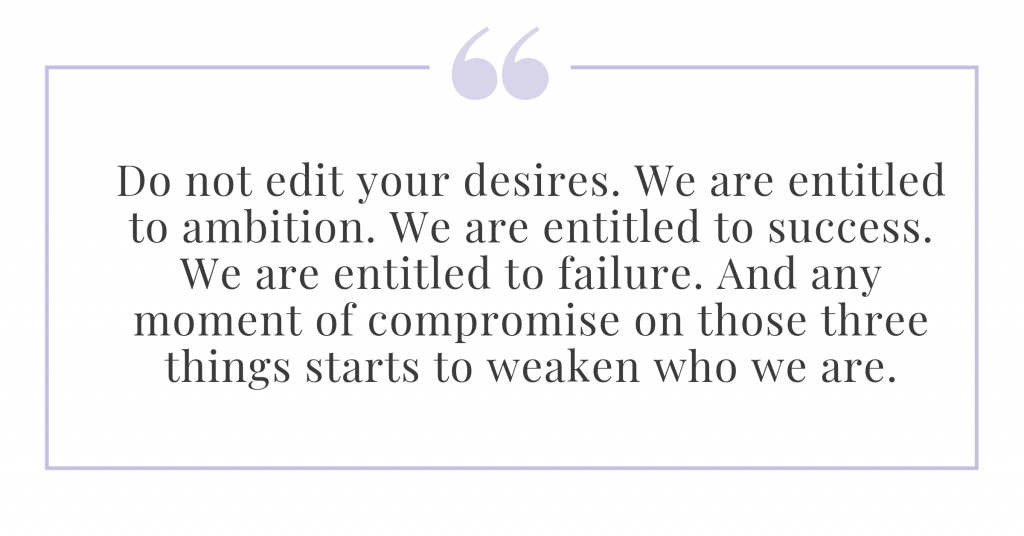
MS: If you had the ear of young girls today, what message would you want to give to them?
SA: Do not edit your desires. We are entitled to ambition. We are entitled to success. We are entitled to failure. And any moment of compromise on those three things starts to weaken who we are. I remember when I mentioned in a Cosmo article that I wanted to be president of the United States one day and just the screams that came at me, particularly from men: “How dare I speak aloud such a dramatic ambition?” And my response was, “Of course I should. If I don’t say it out loud, how will others say it to themselves?” And the minute we allow ourselves to be silenced and to be told that what we want is too much, then we are beginning to weaken who we are and what we can be. And I especially want young women to understand we are capable of everything.
MS: We’re still hearing this right now, with six women running for president, about being likable and how powerful, ambitious women are often deemed as unlikable. And one of the things about being a public figure and speaking your mind is that you oftentimes wind up being subjected to a lot of criticism and scrutiny. How do you handle that? How do you not let that get to you?
SA: As you know, this happens not only in politics but in business. And sometimes it’s not even public, but it’s equally insidious. Part of the way I ran my campaign was sort of launching the conversation that said, “I’m going to be wholly who I am. I’m not going to compromise. I’m not going to change my hair. I’m not going to change my skin color. I’m not going to change my gender. I’m not going to compromise who I am to accommodate your expectations of what I’m capable of.” And I’ve had to do the same sometimes when talking to investors.
In each space, I think the most appropriate response is to not try to scare ourselves into being different, but to really investigate what is scaring them about us. Sometimes it’s just a direct confrontation; it is to say, “This is what I think is your concern about me. Let’s investigate it. Let’s confront it.” The confrontations sometimes can be in a public space. Sometimes it’s offline. But what’s inappropriate is ever allowing someone to wield their expectations of you as a weapon when they use who you are against you. That’s the place where I push back. And I sometimes do it by being openly declaratory. Other times I try to be slightly more radical and insidious, but I never allow it to seep into my internal sense of self and weaken who I am. And people try. It’s hard. It’s hard to push back. And I have to remind myself that I’m more than this person’s low expectations of me.
MS: I think one of the things that you represent that really speaks to the moment of our times is this whole notion that hopefully we’re moving toward new paradigms of leadership and power—power to, power with, rather than power over—using our power to uplift others who have no voice. Can you speak to that? What type of leaders do we need now, and what is your vision of leadership?
SA: The most important leaders are those who are trying to get us somewhere; who are not simply trying to preserve the status quo or aggrandize or aggregate power for themselves. It’s those who are attempting to share that power to create pathways for more people to be a part of the power structure and the power dynamic. And those are the responsibilities of being a candidate for office: you are a proxy for other people’s dreams, for their hopes, for what they they need to see. And the minute we forget that, the minute we believe that the power is ours, as opposed to a shared power—in fact, a loaned power—that’s when politicians start to get into trouble. And if you look at the most disturbing parts of what’s happening in our body of politics right now, and our business community, it’s when people believe that it’s theirs.
I want us to realize that every moment of power is on loan and the way we can restore it and deepen it is by sharing it. And that will happen in different spaces and in different ways. But I believe in this generational notion that the more people have opportunity, the more they have engagement, the stronger we are all made.
MS: Everyone seems to have very certain ideas about your political future. I know you recently announced you wouldn’t be running for the Senate and, of course, there’s still speculation about whether you’ll run for president. How do you go about making these decisions—honoring your instinct, rather than giving in to all of the pressure and other expectations that people have for what you should do?
SA: At the end of the day, these are jobs. We are interviewing for work and you need to think about what the job is. And I’m only going to do a job that I think I’m the best person for. My rubric is the same no matter what it is: Am I the right person? Is this the right time? and Is this the work I want to do?
That will always be my metric because at the end of the day, I’ve got to live with me. I’ve got to come back to what I said I’m going to do and I’ve got to be able to deliver. If I don’t hold myself accountable before I start, I will most certainly stumble and fail in the delivery, and that’s not worthy of anyone.
MS: There are so many different problems in our country and the world that people feel overwhelmed and disempowered and don’t even know where to start or if they can make a difference. What advice or encouragement do you have for them? What do you see as the call to action?
SA: Hope is hard. It is painful. It requires patience and it is erratic in its delivery, but it is the most sustainable source of change and improvement possible. And so I hold to two ideas: the first is hope and the second is fight. Both have to be real and true, but it needs help, and that means we have to fight for what we want. And I think with those twin obligations—the painful power of hope and the remarkable, sustainable nature of fighting—we can get things done.
This article was originally published at ForbesWomen
© Marianne Schnall. All Rights Reserved.
Marianne Schnall is a widely-published interviewer, journalist and the author of What Will It Take to Make a Woman President?, Leading the Way, and Dare to Be You. She is also the founder of Feminist.com and What Will It Take Movements and the host of the podcast ShiftMakers.
